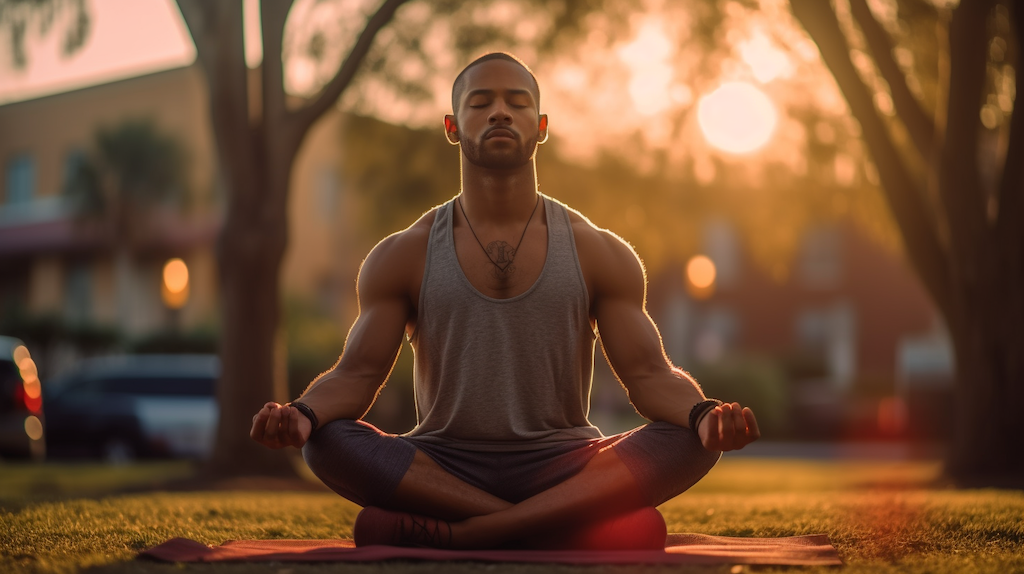
Thinking About Who We Are
Have you ever wondered what makes you, you? What gives you your unique personality, interests, and way of looking at the world? These are big questions that philosophers have been exploring for ages. Let’s think about some of these deep issues in a simple way that we can all relate to.
Remember when you were little and your mom would ask where you wanted to go for dinner? Even as a 5-year-old, you had preferences. Pizza over salad. Burgers instead of fish. We all have likes and dislikes wired into us from a young age that shape who we become. But where do our tastes come from? Is it something innate inside us or does the outside world influence us?
Both nature and nurture contribute to our identities. We’re born with certain personality traits and qualities that make us who we are. Some kids are shy while others are outgoing. Some are bookworms and others are athletic. But our experiences also impact us. Your friend group, activities, and family can shape your perspectives. Interests can develop from experiences – maybe you discovered your love of travel after a family trip or got into chess after a classmate taught you.
So we’re influenced by inner qualities and outside experiences. But there’s another key factor – our ability to make choices. We get to decide things like our hobbies, values, and goals. While influences shape us, ultimately we choose who we become. That’s the wonder of free will.
Free will means we can make decisions about our lives. We aren’t pre-programmed robots acting according to fixed rules. Now, there are limits of course. We can’t choose to fly or live forever. But within the options available to us, we have real choices.
Think about a student deciding which college to attend. She can weigh pros and cons, but the final choice is hers. Or consider a young man determining his career path. He can explore options, but must use his free will to pick a path. We make small choices daily too, like what to eat or wear. While influenced by biology and society, we’re still in charge.
True free will means we’re accountable for our actions too. If we make a mistake or a poor choice, we own it rather than blaming outside forces. Sure, there may be circumstances that contributed, but we still have responsibility. This isn’t meant to guilt us, but rather empower us. We have the ability to course correct and make better decisions.
Reflecting on consciousness is also fascinating. What makes us aware of ourselves and the world around us? Consciousness gives us that magic ability to experience and understand our lives. We don’t just robotically respond to stimuli like programmed machines. Because we’re conscious, we can observe and make meaning from our experiences.
Have you ever sat under a starry night sky and felt awe at the vastness of the universe? That’s your consciousness at work. Or have you looked back on childhood memories and realized how much you’ve changed? That’s self-awareness only possible through consciousness. It lets us reflect on the past, contemplate the future, and make sense of the present.
There are still mysteries about why we have such rich inner lives while other animals seem to exist purely in the present. Neuroscience is unlocking some of the biological processes behind consciousness, but it remains a deep puzzle. Perhaps we should just be grateful for this gift that lets us think and be aware.
Our ability to reason and use language sets humans apart. Thanks to our complex brains, we can create civilizations, technologies, and art. We can fall in love, debate ideas, and design skyscrapers. Not bad for a species that started out hunting with stone tools!
Of course, some philosophers argue we don’t truly have free will or even experience reality as it is. They say we’re controlled by unseen forces or all part of an illusion. But that seems overly skeptical – our choices and perceptions feel real as we live our lives. We feel like agents with the ability to direct ourselves.
Sure, there are influences we may not even be aware of – genes, upbringing, peer pressure. Advertising tries to manipulate us. Governments incentivize certain behaviors over others. But we still have self-determination. We can still choose integrity, curiosity, and kindness.
As you journey through young adulthood asking “Who am I? Why am I here?”, remember you are in control. Fate isn’t dictating your path – you are free to choose meaning and purpose. But also be humble, knowing you are part of something bigger. Find the balance between accepting given realities and shaping your own direction.
Keep asking big questions as you grow. Discuss ideas that stir your soul with people you trust. Explore philosophies and faith traditions to understand different worldviews. But also look within at your own innate wisdom. Who we become is a dance between inner potential and outer experience.
You are conscious, creative, free – even if limited by circumstance. You get to participate in this experiment called life. So make thoughtful choices, take ownership of both successes and mistakes, and seek growth. Share your gifts with the world. Keep asking questions, but live confidently knowing you have the power to find your own answers.